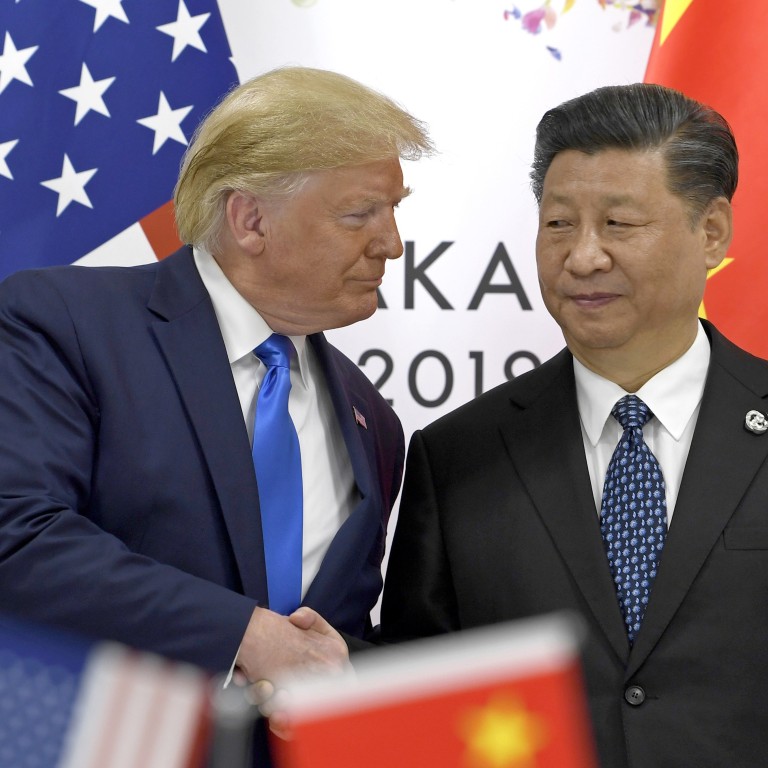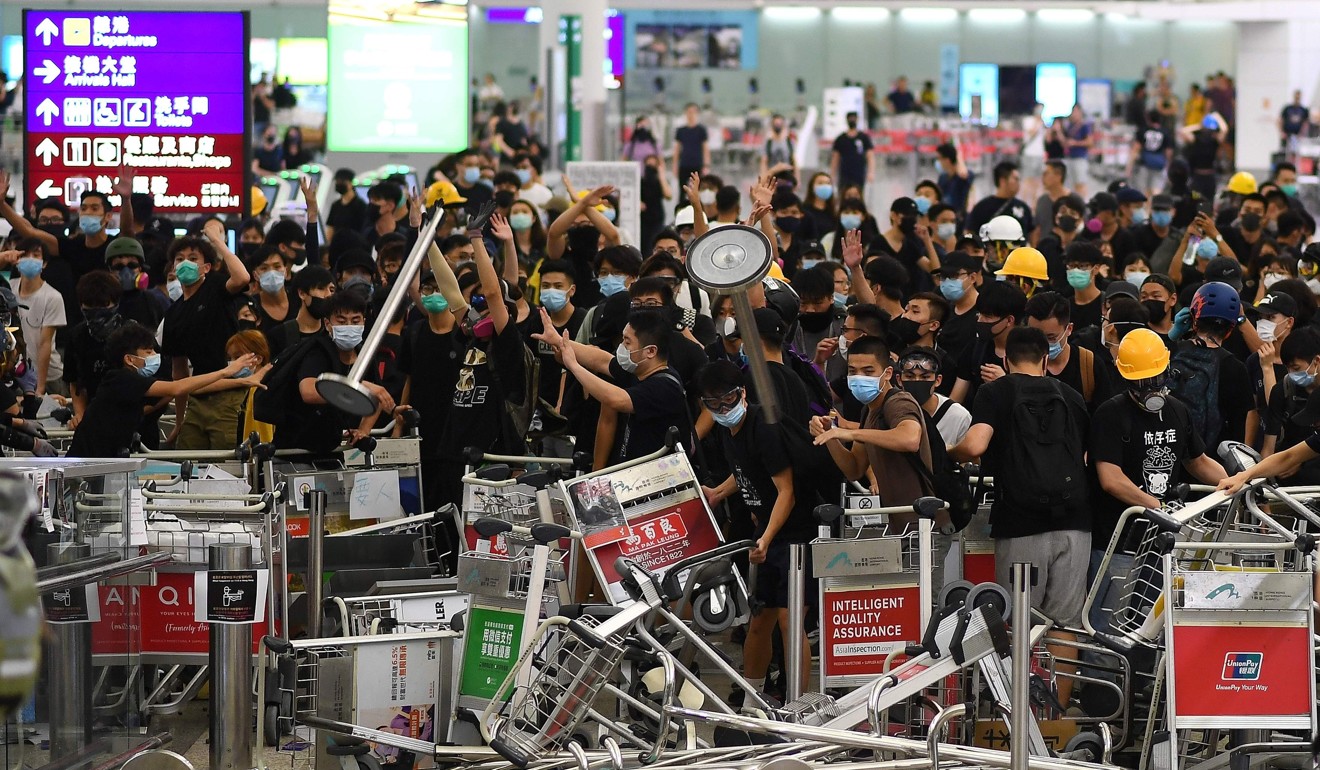
China vows to retaliate if US goes ahead with tariff threat as Donald Trump links Hong Kong unrest to future of trade talks
- Xi Jinping is seen as unlikely to take up US president’s suggestion they meet to discuss ‘humane’ solution to protests
- Observers suggest Beijing believes Trump only raised protests in city as effort to gain more leverage over China in the trade talks
China has promised to retaliate against the United States if Washington imposes additional tariffs on its products on September 1.
A brief statement released by the State Council’s customs tariff commission on Thursday said China would have no alternative but to take countermeasures.
It said the threat to impose 10 per cent tariffs on US$300 billion of Chinese imports ran against the consensus reached by US President Donald Trump and his Chinese counterpart Xi Jinping when they met in Japan in late June.
The warning came after Trump appeared to link the outlook for trade talks with China to a resolution of the Hong Kong protests and suggested another meeting with Xi.
Chinese diplomatic observers said the situation in Hong Kong might have given Trump fresh leverage over Beijing, but the chances of Xi agreeing to meet him remained slim.
Washington has already said it will delay imposing tariffs on around half the products targeted by the latest levy – consisting of laptops, phones and other consumer goods – until December 15.
But on Wednesday night in a series of tweets, Trump weighed in on the protests in Hong Kong, for the first time appearing to link a resolution of the dispute with the trade talks.
In the tweets, Trump called for Beijing to handle the situation “humanely” and for the first time appeared to link the outlook for trade talks with China with a resolution of the Hong Kong protests.
China’s July home prices cool, as trade war, slower growth chill sales
Trump claimed in his tweets that China was “eating” the tariffs through currency devaluation but said Beijing would still be keen to make a deal because “millions” of jobs were being lost to non-tariffed countries and thousands of companies were leaving.
“Of course China wants to make a deal. Let them work humanely with Hong Kong first!” he said.
“I have ZERO doubt that if President Xi wants to quickly and humanely solve the Hong Kong problem, he can do it. Personal meeting?”
Chinese foreign ministry spokeswoman Hua Chunying later repeated Beijing’s line that Hong Kong was an internal matter, and referred to earlier comments by Trump in which he said: “That’s between Hong Kong and that’s between China, because Hong Kong is part of China”.
“I hope the US can really do what it has said,” Hua said in a statement.
Chinese observers also said Beijing was unlikely to agree to a meeting that they saw as no more than Trump seeking to gain an advantage.
“Trump is much more eager to end the trade war as soon as possible now with the falling US stock markets and he wants to use Hong Kong as his new card to bargain with President Xi,” said Wu Xinbo, director at the centre for American studies at Fudan University.
Shi Yinhong, director of the Centre of American Studies at Renmin University, said: “It is absolutely impossible that Xi would meet Trump over Hong Kong. China’s fundamental position is that Hong Kong is it own internal affair, so agreeing to that would discredit its stance.”
Shi added that Trump had so far shown little interest in Hong Kong issues, and only expressed concern about Hong Kong due to growing pressure at home. “Linking Hong Kong to trade talks is only an excuse for the stalled trade talks,” he said.

Pang Zhongying, an international relations researcher at Ocean University of China, also said it was unlikely that China would consider a meeting between Trump and Xi given the state of the trade talks.
China sees ‘positive signal’ in Donald Trump’s US trade war tariff delay
On Tuesday China’s lead negotiator, Vice-Premier Liu He, had a phone conversation with US Trade Representative Robert Lighthizer and Treasury Secretary Steven Mnuchin where, Beijing said, it made “stern representations” about the latest proposed tariffs.
On Wednesday, the US added four Chinese nuclear entities to a trade blacklist, accusing them of helping to acquire advanced technology for military use.
“These things do not seem to create [the right] conditions for the meeting,” Pang said, adding that it was unlikely to produce any meaningful outcome.
“China right now probably needs to assess what Trump is really thinking and why he would suggest a meeting. He seems to bundle trade talks and the situation in Hong Kong together.
“But Trump had previously acknowledged Hong Kong was an internal Chinese affair. So we need to assess what Trump is really thinking.”

